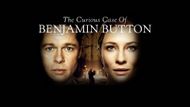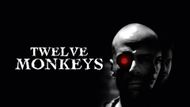Brad Pitt is one of Hollywood’s most recognized actors. However, his career goes beyond just his looks. He has made bold choices in his performances. Over the years, he has chosen roles that challenge norms, explore complex human emotions, and redefine traditional storytelling. Whether in science-fiction, drama, fantasy, or experimental films, Brad Pitt pushes boundaries.
These films are not just entertaining; they are visionary. They feature themes and performances that often felt ahead of their time and were sometimes misunderstood at their release. Here’s a look at seven of Brad Pitt’s most groundbreaking films and what makes them special.
Disclaimer: This article is based solely on the writer's opinion. Reader discretion is advised.
Here is the list of 7 Brad Pitt movies that were way ahead of their time:
7. Ad Astra (2019)

Ad Astra is a sci-fi film directed by James Gray. The story follows Roy McBride (played by Brad Pitt), an astronaut, who goes on a mission across the solar system. We witnessed Roy aim to find his missing father and stop dangerous power surges that threaten life on Earth. The film is quiet, emotional, and thoughtful. Brad Pitt was calm, focused, and emotionally distant. He struggles with personal feelings while trying to remain strong in space.
One standout scene occurs when his spacecraft is hit while landing on Mars. Roy maintains his cool and carefully lands the ship while the rest of the crew panics. In this moment, his quiet strength and control speak louder than words. His emotions come through not in shouting or grand gestures but in small glances and body language.
This performance was different from typical heroic roles in space. His performance in this scene was more realistic and mature. Brad's subtle acting gave depth to the character and showcased a performance that felt truly ahead of its time.
6. Fight Club (1999)

Fight Club is a dark and bold film directed by David Fincher. The story centers on a man (played by Edward Norton) who feels empty and bored with his modern life. He meets Tyler Durden (played by Brad Pitt), a rebellious soap maker who rejects rules and conventional living. Together, they start an underground fight club that gradually becomes dangerous. Tyler is cool and confident. He challenges everything about modern society.
One notable scene shows him addressing the group, telling them they are not special or unique. He shatters their illusions with a calm yet intense tone. Pitt’s delivery is smooth, bold, and unforgettable. He brings raw, fearless energy to Tyler and warns about the direction of the world. The character critiques consumerism and fake identities, themes that gained relevance in subsequent years.
Brad Pitt transformed Tyler into a representation of anarchy and rebellion rather than merely portraying a rebel. His commanding presence and incisive delivery made the part legendary and shaped future representations of comparable characters.
5. The Assassination of Jesse James by the Coward Robert Ford (2007)

Andrew Dominik directed this film. It depicts the story of Jesse James, a popular bandit in the American West, and Robert Ford, who betrays and murders him in the end. Jesse James is played by Brad Pitt as a multifaceted character rather than only a hero or villain. He appears both charming and dangerous, filled with quiet thoughts and sudden violence. The film proceeds slowly, focusing on emotion and mood instead of action.
In a memorable scene, Jesse and his gang prepare to rob a train. Jesse stands silently in the dark, his face obscured by a mask. He speaks little, but his movements and observations convey a palpable tension. He dominates the scene with calm power.
Brad Pitt’s performance embodies quiet fear and mystery. He reveals Jesse's genuine essence through stillness, silence, and subtle gestures rather than loud or quick scenes. This type of behavior was unusual because Western characters are typically loud and harsh. Brad Pitt introduced something fresh to the genre, making Jesse James feel real, haunted, and unforgettable.
4. Moneyball (2011)

Bennett Miller directed Moneyball and released it in 2011. The narrative of this film is based on the true story of Billy Beane, the general manager of the Oakland Athletics baseball team. Brad Pitt plays Billy, a man determined to build a winning team without overspending. He uses statistics and mathematics to uncover latent talent rather than adhering to traditional baseball traditions.
The film showcases his struggles against resistance from coaches, scouts, and players. Brad Pitt plays his character with a blend of frustration, conviction, and calm leadership.
One significant scene illustrates his strong performance when he addresses the team, explaining the need for change. He speaks in a forceful yet quiet voice rather than one that is loud or impassioned. His words are clear and thoughtful, with passion evident in his eyes.
Brad Pitt embodies leadership not by shouting but by trusting his vision and remaining committed to it. This calm, intelligent leadership was unusual in sports films, where heroes often triumph through emotion or luck. Brad Pitt made Billy Beane feel real and relatable, bringing a new kind of strength to the screen.
3. The Tree of Life (2011)

The Tree of Life is an epic and experimental drama directed by Terrence Malick that chronicles the lives of a large family. It moves between the images of the universe and the recollections of a family in 1950s Texas. Here, the narrative centers on the life of middle-aged Jack (played by Brad Pitt), who recalls his early years and his tender mother and severe but loving father.
One moving scene shows him quietly speaking with his sons while they play outside. There is an expression of love and regret in his eyes as if he is aware of more than the game. He does not dare to express everything, but you know what is in his heart: anguish, pride, and fear. He stands still and looks deeply, making you attached to the life and sufferings. It's amazing, that cunning power. In a way that not all films can, Pitt has created a timeless parent who is human, perceptive, provocative, and memorable.
2. The Curious Case of Benjamin Button (2008)

Benjamin Button is the protagonist of David Fincher's fantasy drama The Curious Case of Benjamin Button. Benjamin Button, a man who is born elderly, grows younger as he ages, is the subject of the story.
Pitt portrays Benjamin as both a young adult and an elderly man in the body of a newborn. His growing face and clever eyes convey a great deal of emotion and grief. Among the scenes that demonstrate the modernity of his acting is when Benjamin, as a youngster, catches sight of Daisy, who is now in her sixties.
Pitt gazes wantonly, with mixed feelings. The strangeness of his life is demonstrated by the fact that his affection for her is communicated without his having to speak. That scene feels magical and moving. Pitt conveyed nuanced emotions about time, love, and life with quiet and soft expressions. He made us believe in the heart of a man aging backward, making the role feel both dreamy and profoundly real.
1. 12 Monkeys (1995)

12 Monkeys is a science-fiction thriller directed by Terry Gilliam. The plot follows Cole, a convict from a future ravaged by a virus, who is sent back in time to prevent the outbreak. Pitt portrayed the wild, erratic, and manic Jeffrey Goines.
One scene that showcases his ahead-of-its-time performance occurs when he first appears. He bursts into the room, shouting about animals and freedom, pacing and speaking rapidly. His energy blends humor with danger. He shocks everyone around him.
The previous impression of Pitt as just attractive was altered by that moment. He became chaotic, exciting, and genuine. His voice, body language, and eyes keep you guessing what he will do next. It feels raw and daring. He shows that he can fully immerse himself in a character. Pitt defied expectations, leaving an impact that still resonates today.
We may conclude that Brad Pitt is more than just a Hollywood star. He is a thoughtful and fearless actor. Each role revealed a different side of his talent, from deep emotional restraint to unpredictable intensity. His characters resonated with audiences not because they were loud or showy but because they were layered and genuine.
Brad Pitt took on difficult roles in films that strayed from the usual path. Those choices changed how stories could be told. Looking back, these performances were not just remarkable for their time; they helped shape the future of cinema.
Love movies? Try our Box Office Game and Movie Grid Game to test your film knowledge and have some fun!
